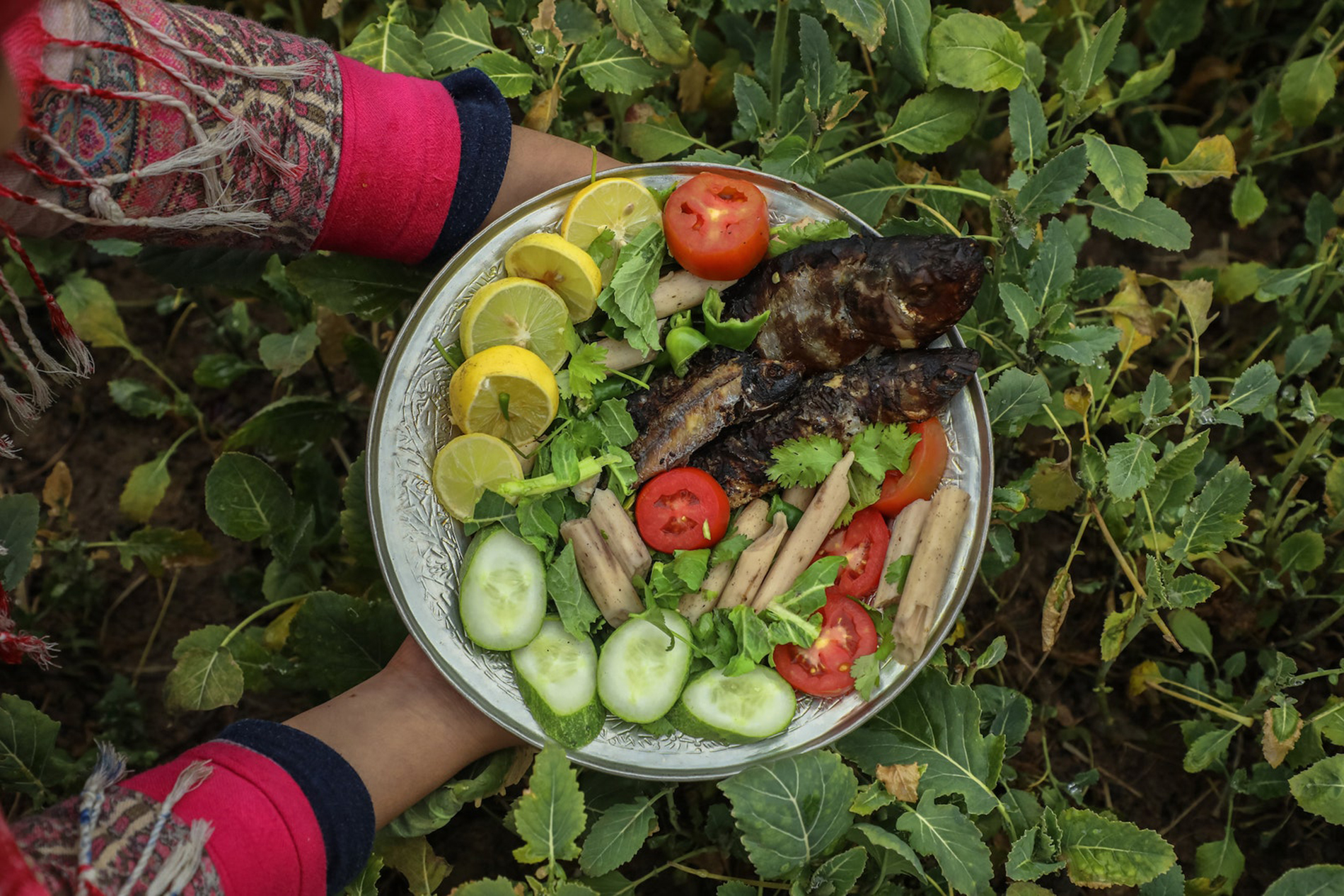DELICIOUS DISHES FROM THE ONCE-FAMOUS TOURIST LAKE AREA
To make the "divine" Fae'rie (smoked salmon), the people of Kashmir must begin preparations as early as the transition from late autumn to early winter. In the past, visitors to Kashmir during this time would often see piles of dried weeds stacked along the shores of Lake Anchar.
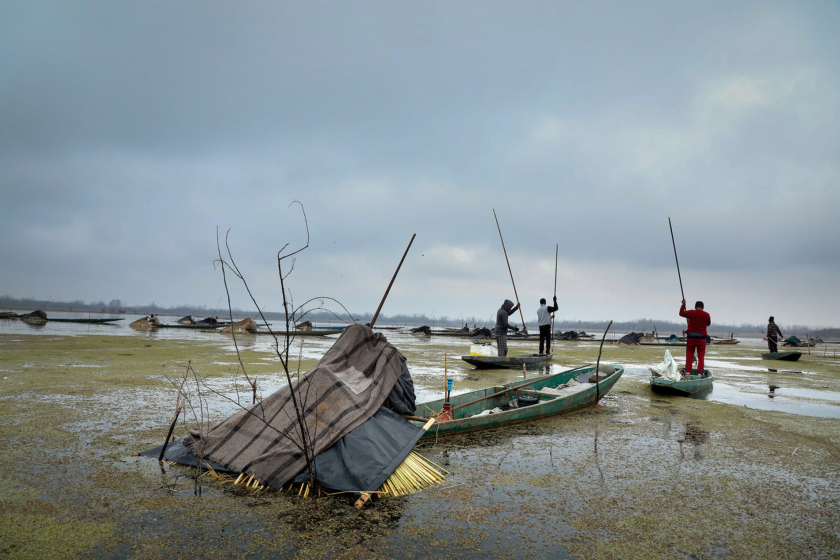
Finding grass is step 1, catching Kasheir gaed (a type of salmon belonging to the Schizothorax genus) is step 2 in preparing for the "divine" Fae'rie dish. (Photo: Sharafat Ali)
This is how the people of Kashmir prepare for the cooking of the "sacred" Fae'rie – a delicious folk dish with the important function of keeping warm. Because soon it will snow and temperatures will drop to between -10 and -20 degrees Celsius, making the Jammu-Srinaga road difficult to travel, resulting in a shortage of green vegetables and many other fresh foods.
Lake Anchar is located near the Soura area of Srinagar, now part of the Union Territory of Jammu & Kashmir in India. Connected to the famous Dal Lake via the “Amir Khan Nallah” canal, Lake Anchar was once a popular tourist destination as visitors often traveled by Shirakas boats and houseboats from Dal Lake to it.
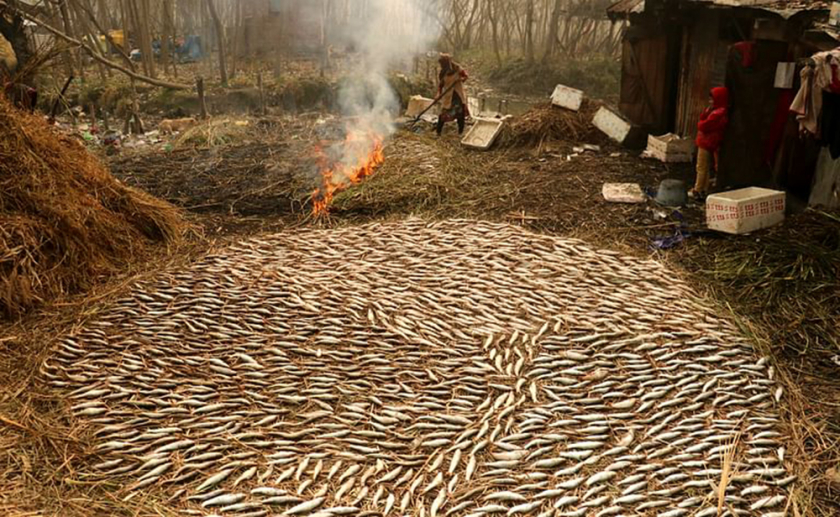
Kasheir gaed are skillfully arranged on a "frame" of dry weeds. (Photo: Greater Kashmir)
Visitors to Lake Anchar can enjoy the scenery and experience how the people of Kashmir prepare the "sacred" Fae'rie dish, while also interacting with and learning about the life of the Hanji community – an ethnic group that lives mainly around the lakes and rivers in the Kashmir Valley.
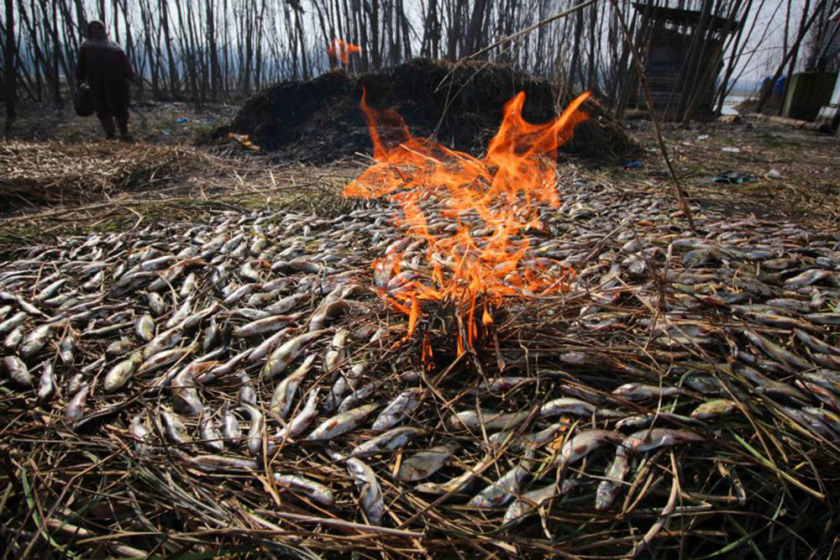
Kasheir gaed, along with a "frame" of dried weeds, is then set on fire, allowing the smoke to play a crucial role in the final step, creating the rich and distinctive flavor of the "divine" Fae'rie dish. (Photo: CatersNews)
In the deep waters of Lake Anchar, there are many Kasheir gaed (a type of salmon belonging to the Schizothorax genus). Locals around the lake catch Kasheir gaed, smoke them with dried herbs, and then prepare them in a special way to make the "divine" Fae'rie dish, which they store for the winter.
THE "PERFECT" FAE'RIE DISH, A "DIVINE" WARMING MEAL FOR WINTER.
To make it, one must follow this recipe: arrange dried weeds into lattice structures, place Kasheir gaed on top, and then light it on fire so that the smoke plays its role in the final step, creating the rich and distinctive flavor of the "divine" Fae'rie. This preserved Fae'rie is then prepared in several ways, the most common in Kashmir being smoked fish cooked with green cabbage, radishes, and tomatoes.
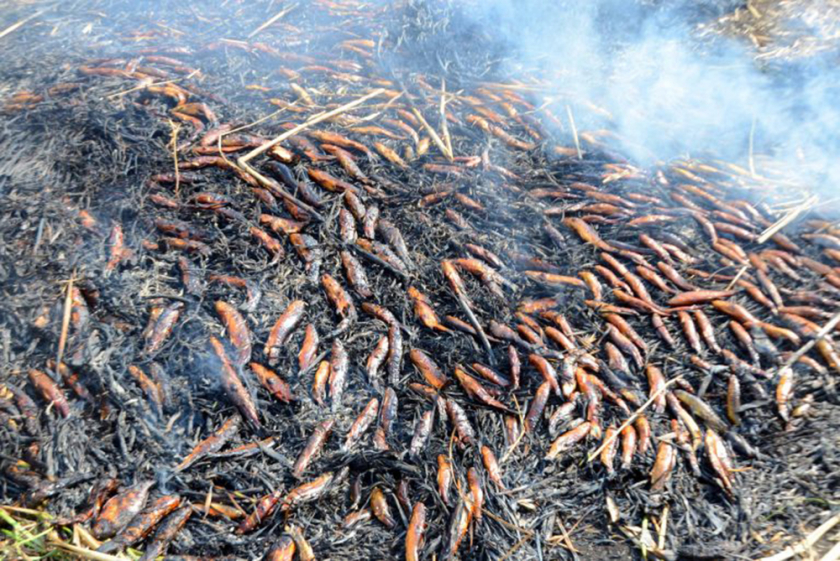
The finished Kasheir gaed after being smoked with dried weeds. (Photo: CatersNews)
The fish is skinned and then fried in a pan over low heat. When the fish turns reddish-brown, add the bok choy that has been cooked with tomatoes and spices. A special spice blend is then added, consisting of cumin, garlic, cinnamon, black and green cardamom, and cloves. Fae'rie is cooked with the vegetables and spices until the liquid evaporates and the flavors permeate the fish. At this point, the elaborately prepared Fae'rie fills the house with its fragrant aroma and has a uniquely delicious taste.
However, many Kashmiris still prefer to eat Fae'rie directly with rice to experience its original "fresh" taste, as they believe that heating it will diminish the distinctive flavor of Fae'rie, which blends the sweetness of the fish with the aroma of dried grass and a smoky undertone.
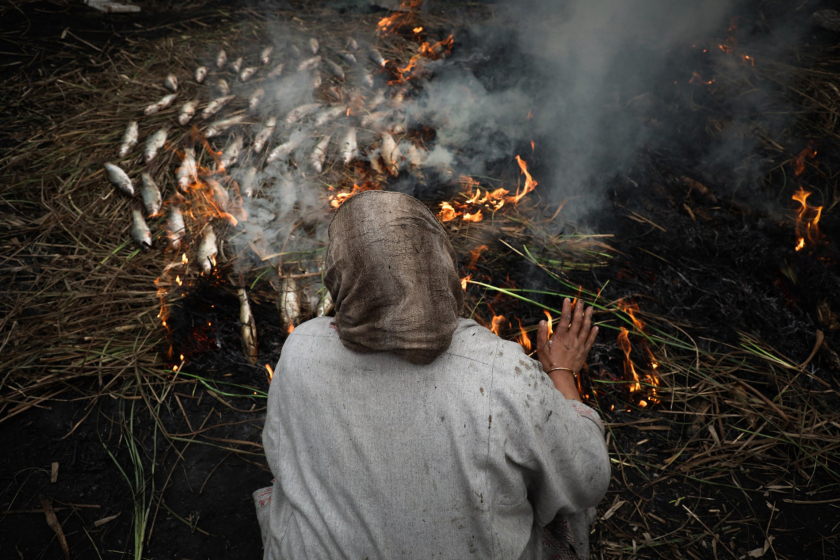
The people of Kashmir believe that the "sacred" Fae'rie helps them stay warm, protecting them from the harsh winter cold when temperatures often drop below freezing. (Photo: Sharafat Ali)
Word spread, and in previous winters, hundreds of kilograms of Fae'rie would be packed into baskets by local women wearing Pheran (a type of traditional long skirt) and sold at markets throughout Srinagar.
Unfortunately, with the passage of time and the development of society, the once-famous "legendary" fae'rie is gradually being overshadowed by readily available packaged foods that require no elaborate preparation or cooking.
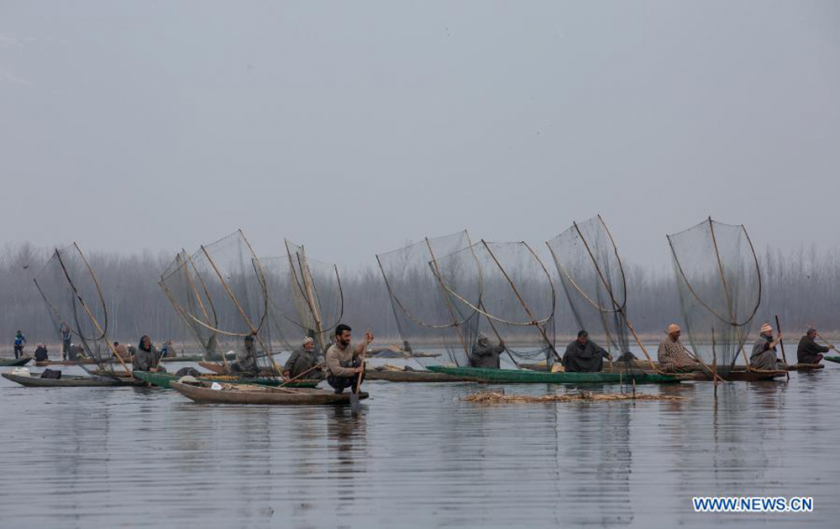
The scene of community fishing on Lake Anchar creates a unique attraction for tourists. (Photo: Xinhua/Javed Dar)
Locals shared that just a few years ago they used to sell up to 150kg of Fae'rie during the three winter months, at prices ranging from 300 to 400 Rupees perkg (approximately 74 Rupees equivalent to 1 USD). However, the amount of Fae'rie sold has now decreased to only 60-80kg each winter.
Therefore, fewer and fewer Kashmiris are still practicing the Fae'rie craft, which requires a lot of effort but has limited demand. This situation makes the "divine" Fae'rie dish scarce, so discerning diners who prefer rustic delicacies have little chance of enjoying the authentic Fae'rie (which is Kasheir gaed from Lake Anchar and smoked with wild herbs).

 VI
VI EN
EN




